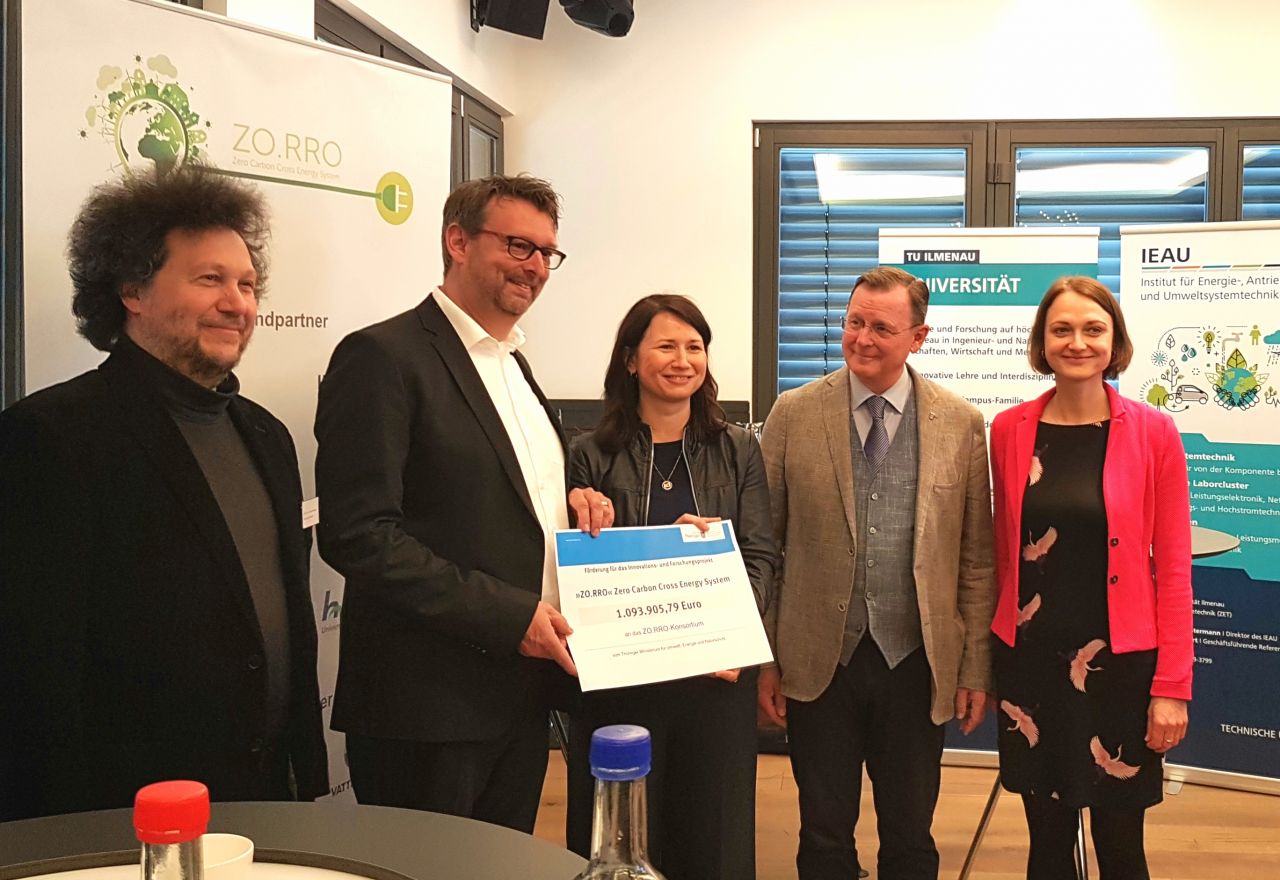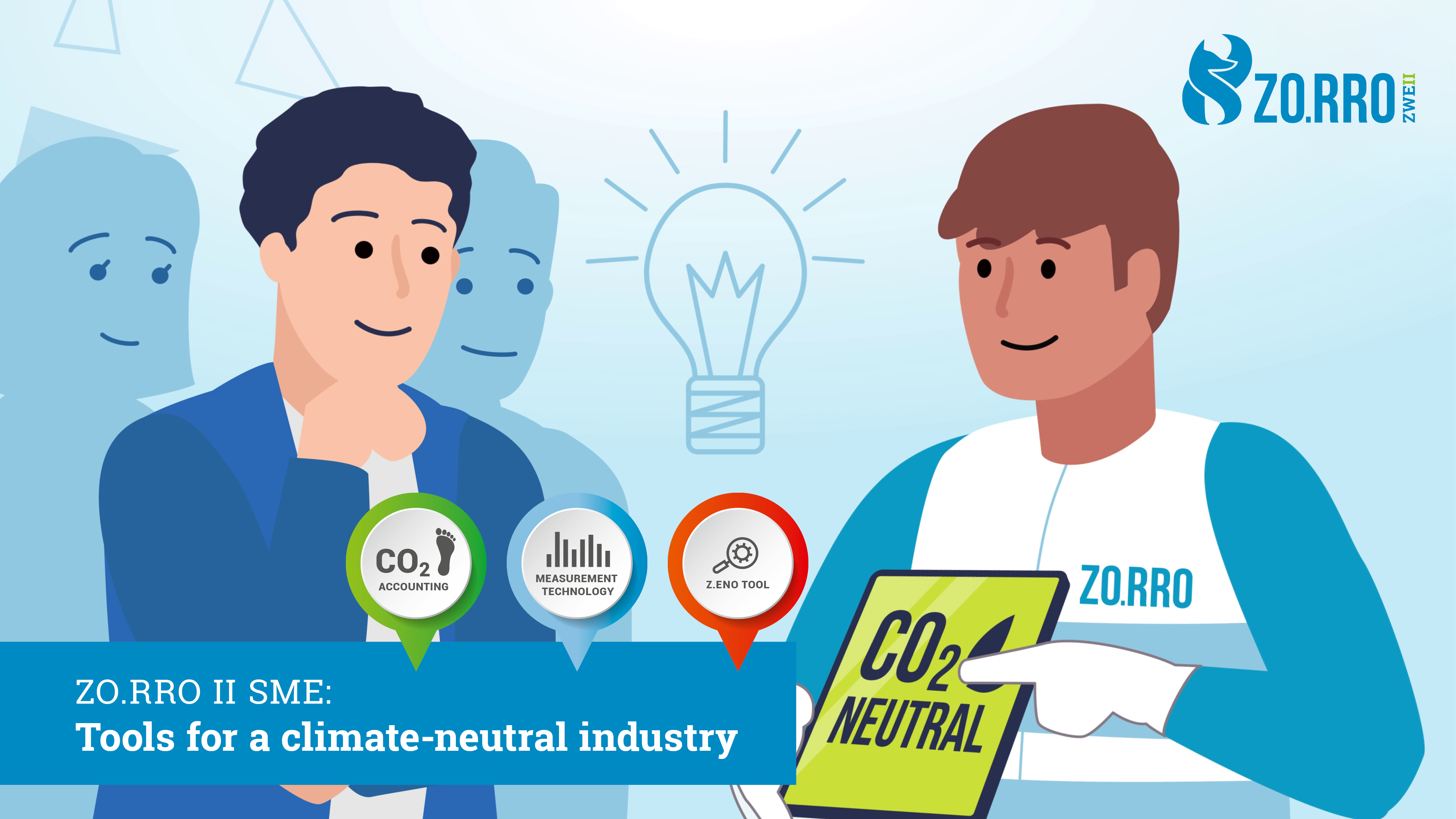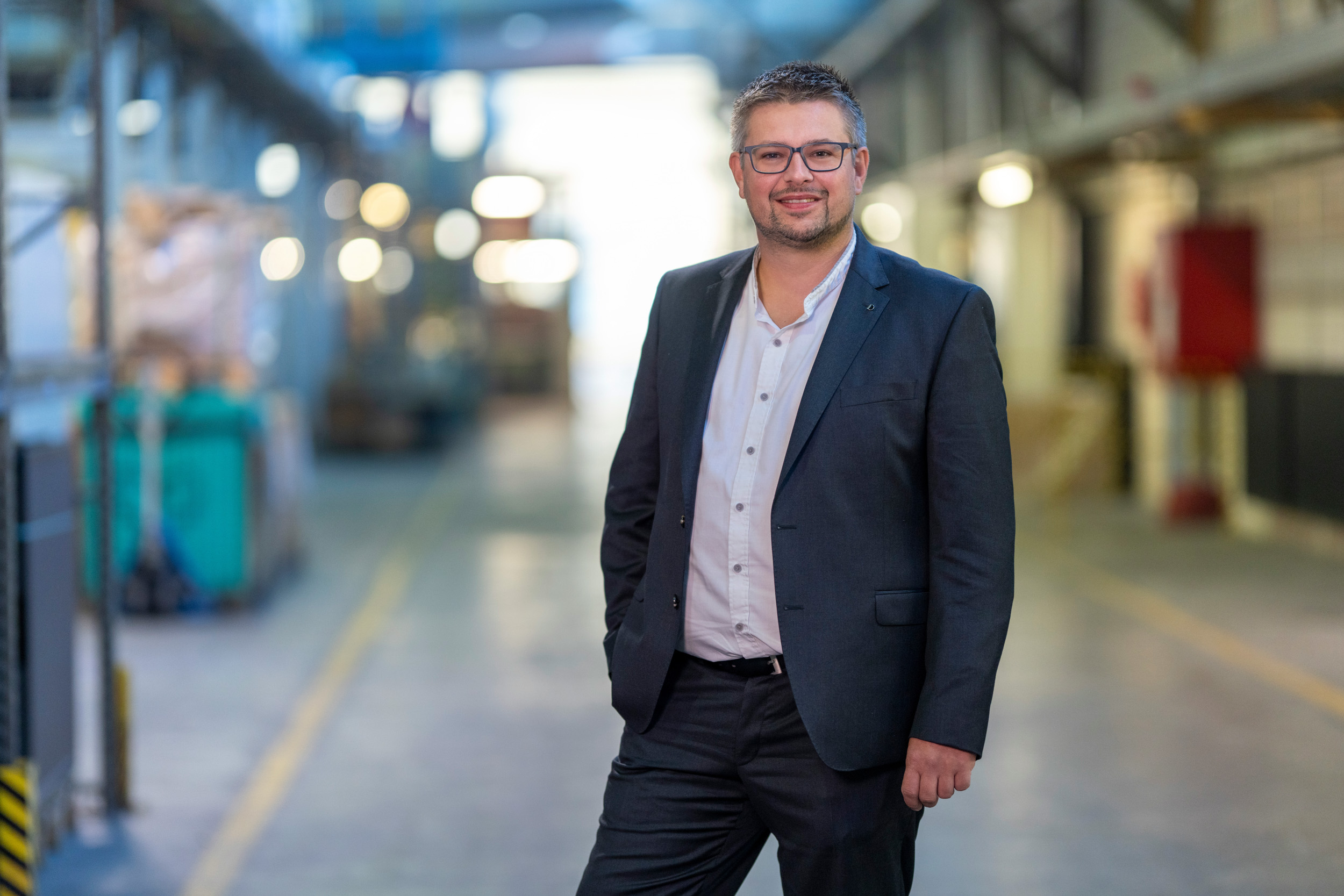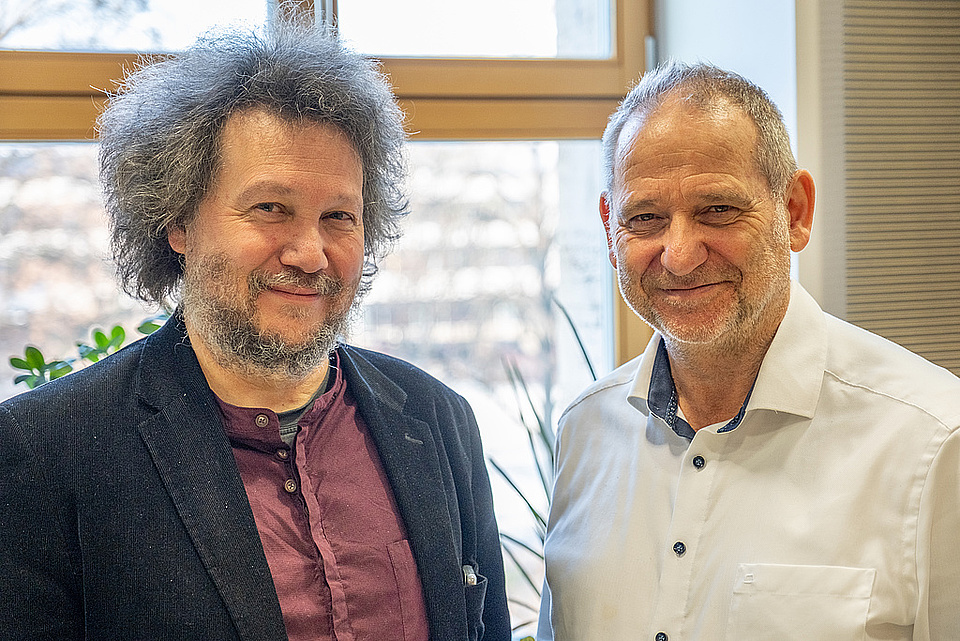15.05.2019 Handover of the funding decision from the Thuringian Ministry of the Environment at the kick-off event
In the major joint project ZO.RRO, which has just started, the consortium leader, Technical University of Ilmenau, with six partners is researching how the energy supply can be made CO2-free, using Thuringia as an example. The scientists will optimize the value chain in industry in such a way that the energy supply required for product manufacturing is virtually free of carbon dioxide. The production process itself will help to achieve a CO2-free energy supply. Small and medium-sized enterprises in Thuringia, which is a region primarily filled with medium sized companies, will especially benefit in competition if they stand out from their competitors by producing their goods and services without CO2 emissions. In the age of the energy transition, the research work of the TU Ilmenau could serve as a model for Germany.
In order to achieve the ambitious goal of a CO2-free energy supply in the ZO.RRO (Zero Carbon Cross Energy System) research project, scientists are looking altogether at electricity, heating, and gas networks, as well as the mobility sector – experts refer to this as sector coupling. Previous projects to reduce carbon dioxide emissions in the power sector have focused primarily on the provision of energy, largely ignoring interactions with system services. System services, which are absolutely necessary to ensure a secure and reliable power supply, are defined by experts as those services in the electricity supply that are necessary for the proper functioning of the system and that network operators provide in addition to the transmission and distribution of electrical energy. Industry indirectly emits carbon dioxide, so to speak, in its ongoing production operations. Scientific analyses assume that up to 20 percent of total CO2 emissions are attributable to system services alone – enormous potential for reducing CO2 emissions, which the research alliance aims to exploit.
Thuringia has committed itself to the energy transition with its energy policy. With its “Target 2040”, the state is striving for a balanced supply from renewable energies. As such, the ZO.RRO project, whose research is focused on Thuringia’s small and medium-sized industry, aims to make an important contribution to this. The technologies and knowledge gained from the project could serve as a model for all of Germany in the future. Minister President Bodo Ramelow can envision Thuringia becoming a technological pioneer for the energy transition: “With its focus and objectives, the ZO.RRO project addresses the key challenges of the energy transition. In an innovative way, the project combines CO2 freedom, flexibility, security of supply price stability and a plus in energy related regional added value. ZO.RRO thus has the potential to become the key to a successful energy and climate turnaround in Germany. As a model region, Thuringia has a unique opportunity to distinguish itself as an intelligent green power plant of the future.”
The first phase of the ZO.RRO project is scheduled to run for three years and is being funded by the German Federal Ministry for Economic Affairs and Energy with 1.8 million euros, of which more than 1.1 million euros is the Ilmenau research site alone. The Thuringian Ministry for the Environment, Energy and Nature Conservation is also supporting Nordhausen University of Applies Sciences and the Thuringian Renewable Energies Network e.V. ThEEN) as partners in the project with over one million euros. Environment Minister Anja Siegesmund explains: „With ZO.RRO, the state of Thuringia is becoming a pioneer in the energy transition. A network for zero emissions and the model for a secure, cost-effective and climate neutral energy supply system is being created here.”
From the end of 2021, the findings from the ZO.RRO research will be tested in practice in small and medium-sized Thuringian companies in a second phase of the project. Professor Dirk Westermann, as director of the Institute for Energy, Drive and Environmental Systems Technology at Ilmenau Technical University sees great advantages in conducting the research project in Thuringia: “Thuringia is particularly suitable because it stands out compared to other German states in terms of its energy supply, economic structure and political framework.”
Energy Supply
The energy supply in Thuringia is entirely in municipal hands and is not provided by large power plants. In addition, there is high potential for expanding energy storage, such as pumped-storage and gas storage facilities.
Economic Structure
Thuringia’s economic structure also makes it an excellent research field for the ZO.RRO project. There are numerous small, innovative and highly flexible companies here, the industrial share is high with companies from the automotive supply industry, mechanical engineering, the materials industry and wood processing, among others, and the location conditions for innovative companies are favorable. In such companies, power consumption is flexible, easily allowing for adaptations, which makes them a perfect fit for ZO.RRO research.
Political Frameworks
Thuringia has committed itself to the energy transition with its energy policy. With its “Target 2040”, it is aiming for a balanced supply from renewable energies, and in the current legislative period, the state has allocated 100 million euros to promote climate protection.
Collaborative partners of the ZO.RRO project:
Sponsored by the German Federal Ministry of Economics:
Technische Universität Ilmenau (Konsortialführer)
Fraunhofer-Institut für Optronik, Systemtechnik und Bildauswertung IOSB (Institutsteil Angewandte Systemtechnik), Ilmenau
Ingenieurbüro für Energiewirtschaft GmbH (IfE), Steinbach-Hallenberg
KoCoS Messtechnik AG, Korbach
Trianel GmbH, Aachen
Sponsored by the Thuringian Ministry for Environment, Energy and Nature Conservation:
Hochschule Nordhausen
Thüringer Erneuerbare Energien Netzwerk e.V. (ThEEN), Erfurt
Associated partners of the ZO.RRO Project:
Deutsche Bahn AG, Berlin
Opel Automobile GmbH, Eisenach
Vattenfall Wasserkraft GmbH, Berlin/Hohenwarte
Advisory Board:
K+S Aktiengesellschaft, Kassel





